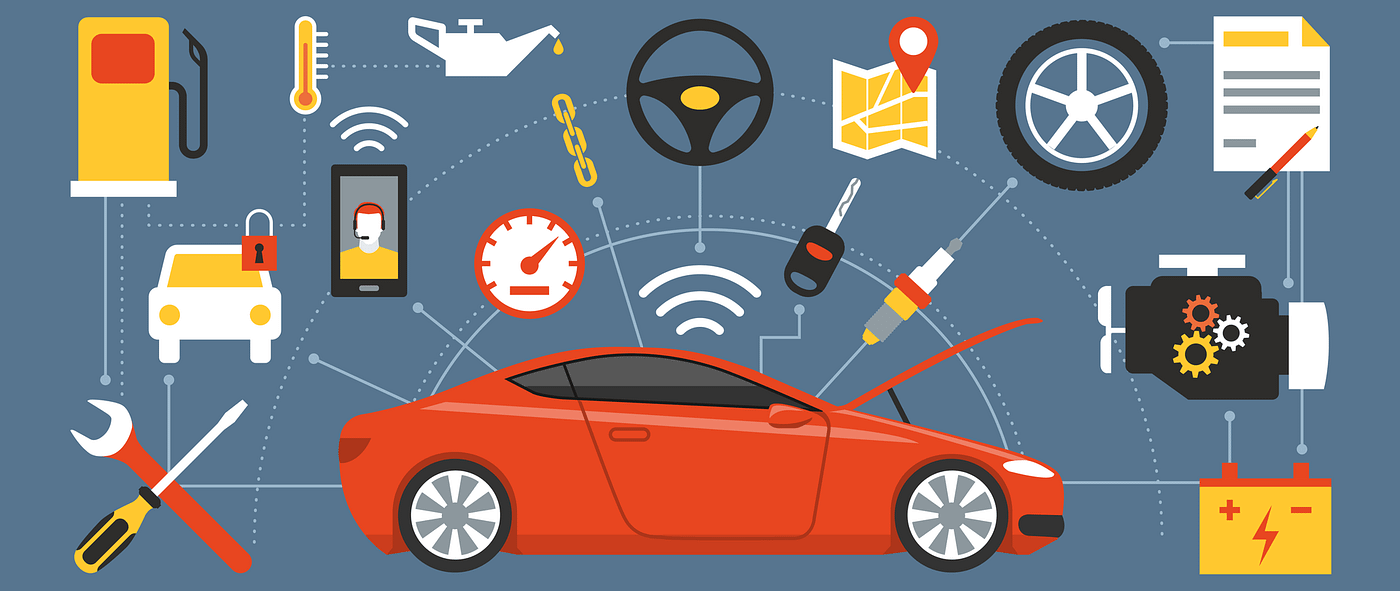All Categories
Featured
Your automobile counts on different fluids to maintain its elements running smoothly and successfully. Neglecting these fluids can result in minimized efficiency, prospective safety and security hazards, and costly repair services. Recognizing the function of each fluid and remaining positive in maintenance ensures your vehicle operates at its ideal. This post explores the crucial lorry liquids and their significance to your cars and truck's health.
![]()
Why It Issues: Without appropriate lubrication, engine parts can grind versus each various other, bring about considerable damages. Upkeep Tips: Check your oil level regular monthly utilizing the dipstick and complement if needed. Change the oil and filter according to your car's service routine, commonly every 3,000 to 7,500 miles depending on the oil type and driving conditions. 2. Coolant: Managing Engine Temperature Level. Coolant, additionally called antifreeze, aids maintain your engine's temperature level within the ideal array. It avoids overheating throughout heat and freezing throughout chilly problems.
Why It Matters: Abject or insufficient coolant can bring about engine getting too hot, which can cause severe damage. Maintenance Tips: Inspect the coolant reservoir regularly and search for leakages or staining. Flush and fill up coolant as advised, usually every two to five years. 3. Brake Liquid: Trusted Ending Power. Brake fluid is vital for your automobile's stopping system, moving the force from your foot on the brake pedal to the brakes themselves. Gradually, brake liquid can soak up wetness, which lowers its performance.
Why It Issues: A jeopardized stopping system can significantly impact your security. Maintenance Tips: Inspect the brake liquid reservoir and guarantee the degree remains within the indicated variety. Modification the fluid every two to three years or as required. 4. Transmission Fluid: Smooth Gear Shifts. Transmission liquid lubricates the transmission components and guarantees seamless equipment adjustments. It also prevents overheating by cooling the system.
![]()
Why It Matters: Disregarded transmission fluid can cause gear slippage, overheating, and even total transmission failing. Upkeep Tips: Monitor the liquid's level and condition routinely. Replace it according to the manufacturer's recommendations, often every 30,000 to 60,000 miles. 5. Power Steering Fluid: Easy Maneuvering. Power steering fluid aids in precise and smooth steering. Reduced or infected fluid can make steering more tough, putting pressure on the system.
Why It Matters: Poor guiding responsiveness can compromise your control over the automobile. Maintenance Tips: Regularly inspect the fluid degree and shade, and top it off as required. Be mindful to leaks or uncommon guiding sounds. 6. Windscreen Washer Liquid: Clear Visibility. While it does not influence performance, windshield washer fluid is important for keeping visibility, especially in negative conditions.
![]()
Why It Matters: A tidy windshield ensures you can see plainly, minimizing the risk of accidents. Maintenance Tips: Re-fill the washing machine fluid storage tank regularly and use a formula matched to your climate to prevent freezing or spotting. Why Routine Fluid Upkeep is Essential. Optimal Performance: Appropriate fluid degrees and high quality make certain all systems run smoothly. Safety Guarantee: Brake and power guiding liquids directly influence your ability to control the vehicle. Expense Savings: Preventative upkeep stays clear of costly repairs by catching prospective concerns early. Longevity: Liquids in great condition help lengthen the life of critical elements, including the engine and transmission. Quick Tips for Effective Liquid Upkeep. Comply with the Guidebook: Describe your automobile's proprietor guidebook for particular maintenance periods. Be Alert for Leaks: Pools under your automobile can suggest liquid leakages that need immediate attention. Usage Recommended Products: Stay with liquids suggested by your car supplier to stay clear of compatibility issues. Pay Attention to Caution Indications: Control panel notifies or uncommon performance can signify fluid problems. Final thought. Preserving your vehicle's liquids is one of the easiest methods to maintain it running successfully and safely. Whether it's engine oil, coolant, or brake liquid, each plays an essential function in your car's total health.

- Engine Oil: The Lifeblood of Your Engine. Engine oil plays a crucial duty in oiling the engine's moving components, lowering friction, and protecting against wear and getting too hot. Gradually, oil comes to be or degrades contaminated with debris, which can compromise its effectiveness.
Why It Issues: Without appropriate lubrication, engine parts can grind versus each various other, bring about considerable damages. Upkeep Tips: Check your oil level regular monthly utilizing the dipstick and complement if needed. Change the oil and filter according to your car's service routine, commonly every 3,000 to 7,500 miles depending on the oil type and driving conditions. 2. Coolant: Managing Engine Temperature Level. Coolant, additionally called antifreeze, aids maintain your engine's temperature level within the ideal array. It avoids overheating throughout heat and freezing throughout chilly problems.
Why It Matters: Abject or insufficient coolant can bring about engine getting too hot, which can cause severe damage. Maintenance Tips: Inspect the coolant reservoir regularly and search for leakages or staining. Flush and fill up coolant as advised, usually every two to five years. 3. Brake Liquid: Trusted Ending Power. Brake fluid is vital for your automobile's stopping system, moving the force from your foot on the brake pedal to the brakes themselves. Gradually, brake liquid can soak up wetness, which lowers its performance.
Why It Issues: A jeopardized stopping system can significantly impact your security. Maintenance Tips: Inspect the brake liquid reservoir and guarantee the degree remains within the indicated variety. Modification the fluid every two to three years or as required. 4. Transmission Fluid: Smooth Gear Shifts. Transmission liquid lubricates the transmission components and guarantees seamless equipment adjustments. It also prevents overheating by cooling the system.

Why It Matters: Disregarded transmission fluid can cause gear slippage, overheating, and even total transmission failing. Upkeep Tips: Monitor the liquid's level and condition routinely. Replace it according to the manufacturer's recommendations, often every 30,000 to 60,000 miles. 5. Power Steering Fluid: Easy Maneuvering. Power steering fluid aids in precise and smooth steering. Reduced or infected fluid can make steering more tough, putting pressure on the system.
Why It Matters: Poor guiding responsiveness can compromise your control over the automobile. Maintenance Tips: Regularly inspect the fluid degree and shade, and top it off as required. Be mindful to leaks or uncommon guiding sounds. 6. Windscreen Washer Liquid: Clear Visibility. While it does not influence performance, windshield washer fluid is important for keeping visibility, especially in negative conditions.

Why It Matters: A tidy windshield ensures you can see plainly, minimizing the risk of accidents. Maintenance Tips: Re-fill the washing machine fluid storage tank regularly and use a formula matched to your climate to prevent freezing or spotting. Why Routine Fluid Upkeep is Essential. Optimal Performance: Appropriate fluid degrees and high quality make certain all systems run smoothly. Safety Guarantee: Brake and power guiding liquids directly influence your ability to control the vehicle. Expense Savings: Preventative upkeep stays clear of costly repairs by catching prospective concerns early. Longevity: Liquids in great condition help lengthen the life of critical elements, including the engine and transmission. Quick Tips for Effective Liquid Upkeep. Comply with the Guidebook: Describe your automobile's proprietor guidebook for particular maintenance periods. Be Alert for Leaks: Pools under your automobile can suggest liquid leakages that need immediate attention. Usage Recommended Products: Stay with liquids suggested by your car supplier to stay clear of compatibility issues. Pay Attention to Caution Indications: Control panel notifies or uncommon performance can signify fluid problems. Final thought. Preserving your vehicle's liquids is one of the easiest methods to maintain it running successfully and safely. Whether it's engine oil, coolant, or brake liquid, each plays an essential function in your car's total health.
Latest Posts
Explore Brake Repair & More: Full Auto Care Solutions from Montclare Auto Repair
Published en
1 min read
Why Consistent Auto Maintenance at Montclare Auto Repair Keeps Your Wallet Happy
Published en
1 min read
Unlock Your Financial Partner at WyHy – Top Benefits for Your Money Goals
Published en
1 min read
More
Latest Posts
Explore Brake Repair & More: Full Auto Care Solutions from Montclare Auto Repair
Published May 29, 25
1 min read
Why Consistent Auto Maintenance at Montclare Auto Repair Keeps Your Wallet Happy
Published May 28, 25
1 min read
Unlock Your Financial Partner at WyHy – Top Benefits for Your Money Goals
Published May 25, 25
1 min read